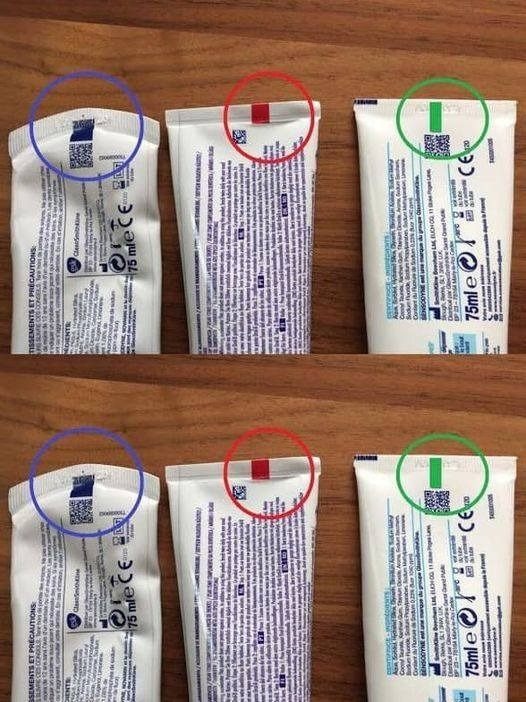Toothpastes are essential for good oral hygiene. They help fight dental plaque, provide long-lasting protection against cavities and prevent bad breath. There are various toothpaste brands in the market that meet all needs. But have you ever noticed a colored stripe on your tube of toothpaste? What does it mean ?
On toothpaste packaging and tubes, manufacturers often only indicate the components of this product, its brand, its manufacturing and expiration date. You may have noticed colored bands on toothpaste tubes that the manufacturers forgot to explain to us.
What do these colored bands on toothpaste tubes mean?
For some time now, “false information” has been circulating that these colored strips are used to indicate the components of toothpaste and their degree of harm to our health. According to this rumor, the colored squares or rectangles at the bottom of the toothpaste tube are different colors and each color indicates the composition of the toothpaste.
Green = This product contains natural components
Blue = This product contains natural and medicinal components
Red = This product contains natural and chemical components
Black = This product contains purely chemical components
This information is completely false and there is no connection between these colored bands and the composition of toothpastes. According to the Association Santé Environnement France (ASEF), these strips serve as reference points helping the machine and the cutting robot in the manufacture of these tubes and packaging. Colors help differentiate and make tubes to a standard shape and size. They can also serve as a reference for traceability and to easily detect a defective batch.
These colors are usually darker than the colors on the rest of the packaging, so the machine can read and detect them more easily. These colored stripes can be found in other food and commercial product packaging, such as cereal packets, cookies and milk cartons. In fact, toothpaste tubes are made with long strips which are cut after depending on the chosen size and the colors are different and vary depending on the manufacturer and the product.
Here are some tips and advice for having perfect oral hygiene:
Good oral hygiene is an integral part of a healthy life, it allows you to have a pretty smile and good breath and helps prevent all kinds of diseases that can affect teeth and gums.
Here are the 3 prevention tips:
Regular check-ups: A visit to the dentist is necessary at least once every six months. It will allow you to diagnose the beginnings of caries and periodontal risks and prevent the onset of diseases.
Food hygiene: Good oral hygiene starts with good food hygiene. Certain foods are likely to trigger the caries process or enamel demineralization, such as foods high in carbohydrates or acidic foods. It is recommended to spread your meals throughout the day and to consume foods rich in calcium and protein.
Brushing: It must be carried out with the right method and the right equipment. First of all, you must brush your teeth after each meal, at least twice a day. Use a toothbrush and toothpaste suitable for your teeth. Don’t forget to change your brush at least every three months and to use dental floss, it will remove the remains of food stuck between the teeth.
